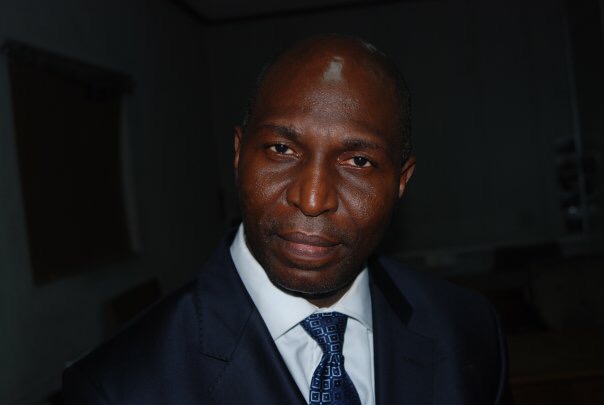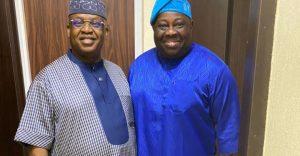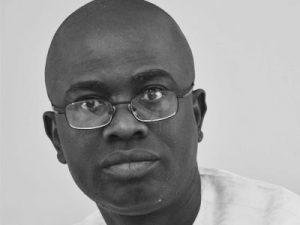
My late history professor makes this essayist think of what he might think of insecurity today.
He always walked in crisp and dapper in his French suits. Professor Tunji Oloruntimehin filled his classroom with his deep bass. His grave face belied the wry thunder that parted his lips. He did not seem to orate, but when he was done, it was as though he had perorated.
His words were few because they lit the tinder of unrest in the mind.
In one of those sessions, we were discussing colonialism in West Africa, and somebody referred to what many historians taught us from secondary school as “indirect rule.”
I never heard him laugh, but his shadow of smile was like a cacophony.
“What’s indirect rule?” he churned. “I know that is what they have taught you.” Some of us, like Osagiator Ojo and Austin Odion, named him Segu Tukolor Empire, the title of his book on colonialism in French West Africa.
The term was one of the neocolonial vestiges. The British enacted a phrase to expiate their tyranny, and our historians did not question it. We parroted their sins. They called it indirect rule even though they made the law, they forced our chiefs and intermediaries to execute them, and they benefited by exploiting our resources and making England a coquette of plenty. If we thought the system was bad, then our people shared the blame. That way, England was no more sinning than the locals. It is the Prospero-Caliban dynamic in Shakespeare’s play, The Tempest. The oppressed fawn over the oppressor. They still teach that today in the pockets of places where history is taught. It took me years to know that England deployed the same subterfuge to rule over the medieval Irish under King James, the lecher who empaneled the translation of the Holy Bible. The prof killed the term, the class embalmed it.
It was the same Oloruntimehin, who opened our eyes to the cunning and wily depravity of slave abolition with the following sentence: “The abolition of slave trade was an act of enlightened self-interest by the Europeans to give the Africans a new role in the international economic system.” Men like Oloruntimehin decolonised our past with his historiography of fortitude.

It is because of Oloruntimehin, who passed on recently at 81, that we must regret our tepid study of history today. It is because we do not have the Oloruntimehins as guiding lights that we do not understand that, perhaps, Nigeria is closer to a civil war today than any time since this country turned from a powder cake to rubbles of flesh and blood in the 1960’s.
History has taught us that when hostilities begin, no one believes it. We overestimate the dove in human nature. The Yoruba wars began over a fight over pepper. That food nutrient was to fodder hate for decades in Yorubaland. The first World War broke after the murder of an archduke who no one knew until grenades met grenades across the world. No one thought the First World War would happen because, more than any time in history, the world had interconnected. The tensions blew over one odd moment. But the beast reigned over peace. It was the divorce that erupted over the taste of egusi soup or the snore at 2 am.
Hence we must beware of the warlords. The president ought to address the slide into a de facto hate state. We are gradually descending into a normalisation of inter-ethnic hate. A man rose from the southwest. No man knew him except as a routine hireling of politicians. His tribesmen are victims of another tribesman. No one cautions the rampage of rape in the farms, abduction of his people and the amassing of fortunes of the enemy at the local’s expense. He roars with their collective pain. They hear him. They follow him. He returns hate for hate. Anger sheds blood and houses burn. Love fails.
We are supposed to have a federal government. But no one is able to chasten Igboho, not only in Ibadan and all of the southwest. The Igboho phenom develops hooves and horns like the character in Rushdie’s Satanic Verses. He is beginning like a little lizard in the sewer. He takes nourishment and grows bigger by the day. Everyone who feels like him feeds his expanding appetite, and do not know or care if this little master metastasizes into a monster. They are donating money, filling his purse. They are enriching his armoury.
His growing fame emboldens him. He has become an evangelist of hate, trying to work up ethnic miracles from state to state for all who gripe or pine. It is not as if he did not see a need, or that he is not filling a need. It is because the centre is not holding.
The main failure is not arms from government. We often think the bigger the troops, the heftier the stockpile, the better the security. Knowledge is stronger than arms. David was puny before Goliath. In the two world wars, Germany began with best army. But we have no knowledge to fight. We are being destroyed for lack of knowledge. Or a resistance to knowledge. Do we not have secret service? Where are they? Did they not know of the Seriki Fulani of Igangan and his atrocities? If they knew, why did they do nothing? It is because they did nothing that they fold their arms as Igboho preens and struts. But Igboho has become an untouchable. His is a flame of fire now. To put it out is like the guards who wanted to quench the fires of the three biblical Jews. They made the fire, but who would put it out?
The same thing is happening across the country. Lai Mohammed said the bandits hear Sheikh Gumi more than the government. That is a tragedy. The falcon cannot hear the falconer. It is because the security failed that they are looking for extra-government help. Does it not show military impotence? If the Sheikh knows them, it means they are not spirits. So why can’t we root them out?
Security is about local knowledge. No one can say, in the intelligence forces, that we don’t know who the hoodlums are and where to flush them out? In each forest, there are demons. In each forest, Nigerians farm and hunt. Why is it impossible to trace them? The best technology in the world for this is the drone. It is cheap and works.
It is not enough for the army to publish pictures of airstrikes and torched hideouts of Boko Haram. We are never asked to corroborate them, or even to assess their impact on strategy and the prognosis of the war on terror. Our military is like the cat prowling and growling about in the savanna.
We cannot make peace by changing service chiefs but by a strategy and map for victory. It is not generals who win war, but strategies. Hence during the American civil war, Abraham Lincoln hinged his endgame, among others, on horses. He told his army chief about getting horses and when he was told that it would cost him his generals, he said, he could make new generals but he could hardly make new horses.
We need a word from Aso Rock. We need the president to address the country. Not the sugarcoated flatteries of spokesmen. The president achieved an extraordinary milestone by linking the Apapa seaport to the Lagos-Abeokuta-Ibadan rail. The east should be waiting with fanfare over the Second Niger Bridge. Ordinarily, it should vibrate over the waves. But what damsel wants a mansion when the houseboy is a rapist.
We need to tamp down the tensions. As I noted last week, we cannot be a nation when citizens are less at home when at home. Let’s save the powder cake and make a sweet one for everyone. Professor Oloruntimehin must be purring same from his grave.
– Omatseye, a respected columnist, writes for The Nation

















